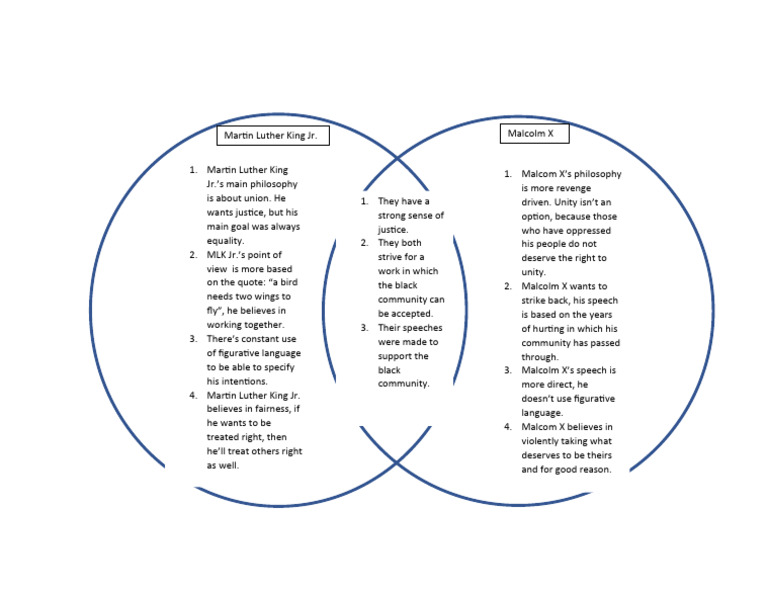Malcolm X vs MLK: A Tale of Two Leaders

The Struggle for Civil Rights: Malcolm X vs Martin Luther King Jr.
The Civil Rights Movement in the United States was a pivotal moment in American history, marked by the struggles of African Americans to achieve equal rights and social justice. Two prominent leaders emerged during this period, each with their own unique approach and philosophy: Malcolm X and Martin Luther King Jr. While both leaders played crucial roles in the movement, their methods and ideologies often put them at odds with each other.
Early Life and Influences
Malcolm X was born Malcolm Little on May 19, 1925, in Omaha, Nebraska. His early life was marked by poverty and violence, with his father’s murder and his mother’s subsequent institutionalization. These experiences would later shape his views on racism and the need for African American self-defense. Malcolm X was introduced to the Nation of Islam while serving time in prison, and he quickly rose through the ranks to become one of the organization’s most prominent figures.
Martin Luther King Jr., on the other hand, was born on January 15, 1929, in Atlanta, Georgia. His early life was marked by a stable and supportive family environment, with his father serving as a Baptist minister. King’s early education and training in theology would later influence his commitment to nonviolent civil disobedience.
Philosophies and Methods
Malcolm X’s philosophy was rooted in the idea of self-defense and empowerment for African Americans. He believed that the civil rights movement should focus on achieving economic and social equality through any means necessary, including violence if necessary. Malcolm X’s message was one of Black Nationalism, emphasizing the need for African Americans to take control of their own destiny and defend themselves against racist oppression.
In contrast, Martin Luther King Jr.’s philosophy was centered on nonviolent civil disobedience. He believed that the civil rights movement should focus on achieving social justice through peaceful means, such as protests, boycotts, and civil disobedience. King’s message was one of integration and equality, emphasizing the need for African Americans to work together with white Americans to achieve a common goal.
The Rift Between Malcolm X and MLK
The rift between Malcolm X and Martin Luther King Jr. began to grow in the early 1960s, as their philosophies and methods began to diverge. Malcolm X’s increasing militancy and calls for self-defense were seen as a threat to King’s nonviolent approach. King, on the other hand, saw Malcolm X’s methods as counterproductive and divisive.
One of the most notable clashes between the two leaders occurred in 1963, when Malcolm X criticized King’s March on Washington for Jobs and Freedom, calling it a “farce” and a “ mockery.” King, in turn, criticized Malcolm X’s message of hatred and violence, saying that it would only lead to more suffering for African Americans.
🚨 Note: The rift between Malcolm X and MLK was not just about philosophy, but also about personal differences. Malcolm X saw King as too soft and compromising, while King saw Malcolm X as too radical and divisive.
Assassination and Legacy
Malcolm X was assassinated on February 21, 1965, while speaking at the Audubon Ballroom in New York City. His legacy is complex and multifaceted, with some viewing him as a heroic figure who fought for African American rights, while others see him as a divisive and militant leader.
Martin Luther King Jr. was assassinated on April 4, 1968, while standing on the balcony of the Lorraine Motel in Memphis, Tennessee. His legacy is widely regarded as one of the most influential and inspiring in American history, with his message of nonviolent civil disobedience continuing to inspire social justice movements around the world.
Comparison of Malcolm X and MLK's Leadership Styles

| Malcolm X | Martin Luther King Jr. | |
|---|---|---|
| Philosophy | Self-defense and empowerment | Nonviolent civil disobedience |
| Method | Militant and confrontational | Peaceful and collaborative |
| Message | Black Nationalism and separatism | Integration and equality |
| Leadership Style | Charismatic and authoritarian | Inspirational and inclusive |
Conclusion
The tale of two leaders, Malcolm X and Martin Luther King Jr., is a complex and multifaceted one, marked by both similarities and differences. While both leaders played crucial roles in the Civil Rights Movement, their philosophies and methods often put them at odds with each other. Despite their differences, both leaders left an indelible mark on American history, inspiring future generations to continue the struggle for social justice and equality.
What was the main difference between Malcolm X and Martin Luther King Jr.’s philosophies?
+The main difference between Malcolm X and Martin Luther King Jr.’s philosophies was their approach to achieving social justice. Malcolm X believed in self-defense and empowerment, while King believed in nonviolent civil disobedience.
What was the significance of the March on Washington for Jobs and Freedom?
+The March on Washington for Jobs and Freedom was a major civil rights event where Martin Luther King Jr. delivered his famous “I Have a Dream” speech. It was a pivotal moment in the Civil Rights Movement, highlighting the need for social justice and equality.
How did Malcolm X’s assassination affect the Civil Rights Movement?
+Malcolm X’s assassination was a significant blow to the Civil Rights Movement, as he was a prominent figure and a powerful voice for African American rights. His death marked a turning point in the movement, as many activists began to question the effectiveness of nonviolent civil disobedience.



